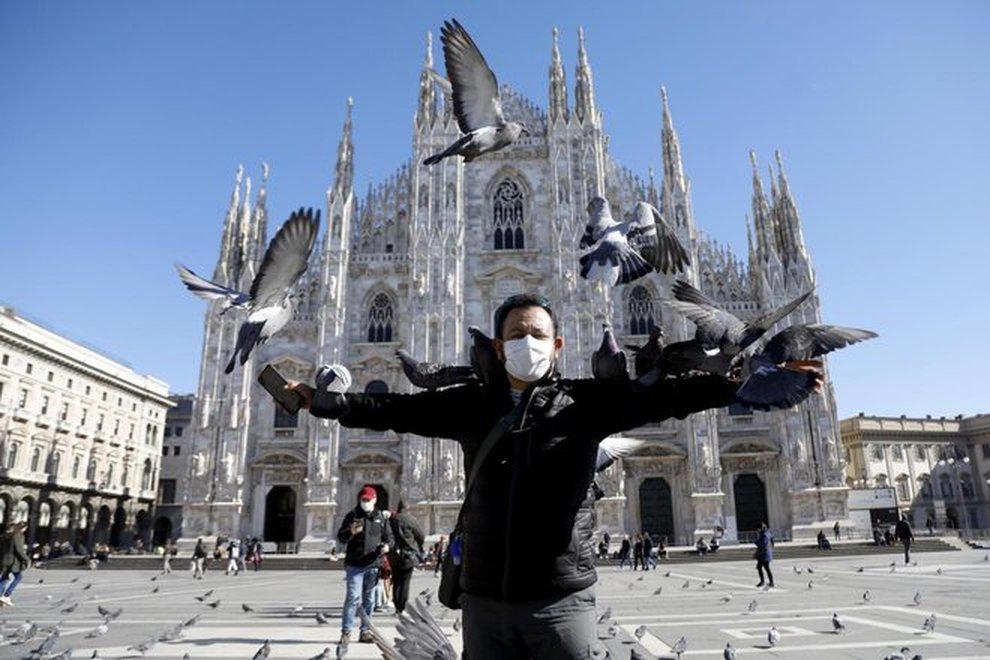“The danger is clear,” says Milly Porro, a lawyer in Milan, Italy. “The infection does not stop if we don’t stay isolated at home.”
It’s a sentiment that Australians are just starting to get their heads around. In Italy, the country worst hit by coronavirus (with nearly 64,000 infections and more than 6000 deaths, as of Monday, 23 March), the country has been in lockdown for three weeks.
Italy introduced even stricter measures earlier this week in an effort to slow the spread of the virus, severely restricting any movements outside the home and banning public exercise, as it struggles to cope with a tide of Covid-19 patients overwhelming its hospitals.
Schools, universities, restaurants, bars, beaches and borders are closed. Parks and public gardens were shut last week.
Porro spoke of her “fear for my dear family, my friends, and myself”, and of the pressures which Italians are feeling as a result of “the lack of freedom, combined with the fear of not being protected, even in one’s own home”.

But she also expressed some positive sentiments about the unprecedented situation.
“Staying home has its advantages. You find time to think, read and, strangely, you don’t feel alone, because feelings survive the distances.”
Milly Porro, Milan
The citizens of other European countries have also been deeply affected by the pandemic’s sweep across the continent.
Catherine Vallée lives in Mullhouse, France, and owns a hair salon just over the Swiss border. She has had to shut the salon until further notice, following Switzerland’s edict that all businesses except those supplying essential goods and services close.
Switzerland has the world’s second highest infection rate after Italy, with nearly 800 cases per million people.
Vallée says she has “no income during this time”. She adds:
“The financial situation for me is going to be difficult if the measures from the government drag on.”
Catherine Vallée, Mullhouse, France
At the same time, the crisis has awakened a community spirit, with people cheering health workers and other frontline staff out of their windows at 9pm each night, according to Vallée.

“Despite the fear of not knowing what is still to come, the solidarity of the neighbourhood is very much there.”
With nearly 200,000 people infected in Europe, and more than 13,000 deaths across the continent to date, Britain on Monday became the latest country to impose a near-total lockdown.
People are now forbidden from going outside, except to buy food or medicine, and can only exercise alone, once a day. Schools closed last week.

France, where 860 people have died, has been in lockdown for more than a week, and Prime Minister Édouard Philippe announced even tighter measures on Monday. In Germany, a number of states have imposed partial lockdowns.
Germany closed its borders with France, Austria and Switzerland last week.
Barbara Holländer, a paramedic in Hamburg, Germany, fears the closure will lead to “a massive supply problem in care personnel”.
“Nurses from countries in Eastern Europe wanting to enter Germany to help are not able to enter. This will result in a shortage in nurses, affecting hospitals and nursing homes.”
Barbara Holländer


